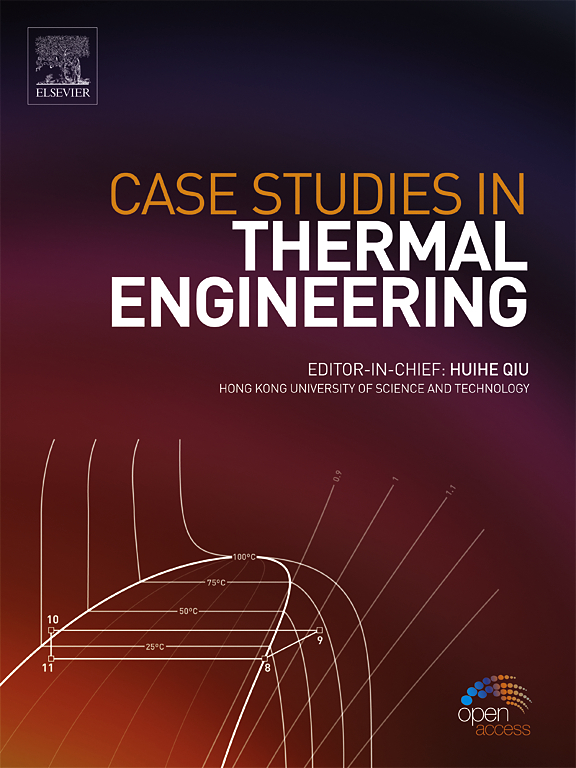聚合物电解质膜燃料电池性能革命:人工智能验证的不对称流动通道通过混合分析-数值框架增强了质量传递
IF 6.4
2区 工程技术
Q1 THERMODYNAMICS
引用次数: 0
摘要
聚合物电解质膜燃料电池(PEMFCs)的流道设计是提高其质量传递和整体性能的必要条件。本研究介绍了一种新的非对称气通道横截面,并通过分析建模、数值模拟和实验测试三方面的方法进行了验证。本文通过正则摄动法和伽辽金方法的结合来有效地求解非线性控制方程,对所提出的轮廓进行了分析检验。结果一致表明,截面参数ε = 0.5的c3结构通过优化物种迁移和减少浓度损失而获得了更优的性能。实验验证证实,与传统设计相比,电流密度提高了5.6%,而人工智能(AI)驱动的优化通过混合卷积神经网络和遗传算法独立识别出相同的最佳配置。来自分析、数值、实验和人工智能驱动方法的大量证据证实了所提出的设计作为提高PEMFC效率的弹性和可扩展解决方案的有效性。本文章由计算机程序翻译,如有差异,请以英文原文为准。
Polymer electrolyte membrane fuel cell performance Revolutionized: Artificial intelligence-validated asymmetric flow channels enhance mass transport via hybrid analytical-numerical frameworks
The enhancement of the flow channel design of polymer electrolyte membrane fuel cells (PEMFCs) is imperative for the improvement of mass transport and overall performance. This study introduces novel asymmetric gas channel cross-sectional profiles, validated through a tripartite approach encompassing analytical modeling, numerical simulations, and experimental testing. The proposed profiles are subjected to analytical examination through the implementation of a combination of the regular perturbation method and the Galerkin approach to efficiently solve nonlinear governing equations. Four innovative designs (c1 to c4) are evaluated, and the results consistently demonstrate that the c3 configuration with a cross-section parameter ε = 0.5 achieves superior performance by optimizing species transport and reducing concentration losses. Experimental validation confirms a current density improvement of up to 5.6 % over conventional designs, while Artificial Intelligence (AI)-driven optimization via a hybrid Convolutional Neural Network and Genetic Algorithm independently identifies the same optimal configuration. The preponderance of evidence from analytical, numerical, experimental, and AI-driven methods corroborates the efficacy of the proposed design as a resilient and expandable solution for enhancing PEMFC efficiency.
求助全文
通过发布文献求助,成功后即可免费获取论文全文。
去求助
来源期刊

Case Studies in Thermal Engineering
Chemical Engineering-Fluid Flow and Transfer Processes
CiteScore
8.60
自引率
11.80%
发文量
812
审稿时长
76 days
期刊介绍:
Case Studies in Thermal Engineering provides a forum for the rapid publication of short, structured Case Studies in Thermal Engineering and related Short Communications. It provides an essential compendium of case studies for researchers and practitioners in the field of thermal engineering and others who are interested in aspects of thermal engineering cases that could affect other engineering processes. The journal not only publishes new and novel case studies, but also provides a forum for the publication of high quality descriptions of classic thermal engineering problems. The scope of the journal includes case studies of thermal engineering problems in components, devices and systems using existing experimental and numerical techniques in the areas of mechanical, aerospace, chemical, medical, thermal management for electronics, heat exchangers, regeneration, solar thermal energy, thermal storage, building energy conservation, and power generation. Case studies of thermal problems in other areas will also be considered.
 求助内容:
求助内容: 应助结果提醒方式:
应助结果提醒方式:


